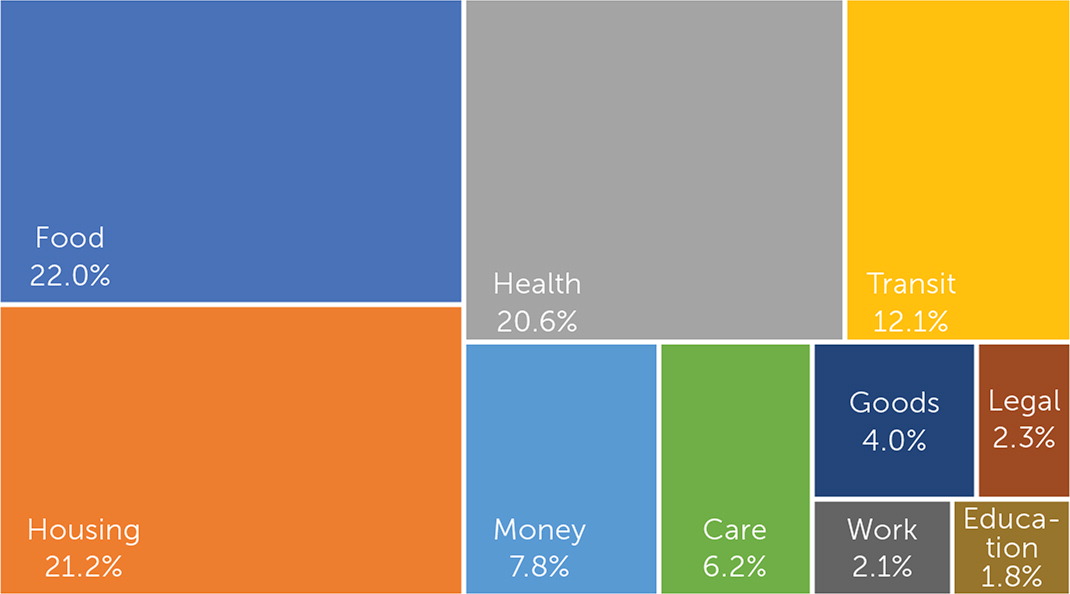
Am Fam Physician. 2023;107(1):19
Author disclosure: No relevant financial relationships.
Social determinants of health are crucial drivers of health outcomes and inequities in the United States and account for approximately 80% of health outcomes, compared with only 20% for health care.1 Family physicians are increasingly asked to assess social needs and connect patients with appropriate resources. One commonly used resource referral platform is Aunt Bertha/findhelp, which was adopted by the American Academy of Family Physicians and branded as the Neighborhood Navigator tool in 2018. We analyzed more than 168,000 searches between November 2018 and April 2022 to identify patterns that may inform the direction of policy, funding, education, and resource allocation.
The most common Neighborhood Navigator searches were for food, housing, and health care referral (Figure 1). Seasonal analysis revealed 22% more searches in the winter than in the spring, potentially due to the increased need for housing assistance during colder months in some areas. The average number of monthly searches increased by 119% between 2018 and 2022, which was likely attributable to program expansion, dissemination of the tool, and the impact of COVID-19 later in this time frame. Neighborhood Navigator searches increased by 47% during the COVID-19 pandemic. The largest increases were for housing (79%), health (43%), and transportation (40%).

These data suggest that U.S. family physicians are increasingly using the database to search for community resources to address social determinants of health in the clinical setting, which may indicate increased attention to their patients' social needs. Additional resources should be allocated to assist family physicians with helping their patients address food and housing insecurity, in addition to addressing the need for health care, because these are the most searched categories in the database. Resources for emergency planning may also be used to bolster housing, health care referral, and transportation assistance because these categories had the largest increases in searches during the COVID-19 pandemic.
Further research is necessary to determine how other clinicians or health systems are using their own resource referral platforms and how their use is similar to or differs from the use of the Neighborhood Navigator tool. Additional research is also needed to determine how use of these social referral platforms impacts health outcomes.
